By Carolyn Martin (CHEC Director of Government Relations)
Charter School Accountability: A Warning
Charter schools are public schools that are managed by third-party contactors and governed by their own board of directors instead of the local school board. They must follow state standards unless the Colorado State Board of Education (SBOE) grants them a waiver. Currently, the law allows charter schools to waive certain requirements in state law automatically. Things like teacher requirements, school schedule, and prescription of textbooks can be waived automatically. These waivers allow charter schools to offer different programing than the traditional public school. Since the inception of the charter school law in 1993, just five years after the passage of the homeschool law, the number of charter schools has grown from 2 to almost 300.
Last month, a bill (HB24-1363 Charter Schools Accountability) was introduced that will devastate the uniqueness of charter schools. The sponsors of the bill claim it will bring better accountability and transparency for parents, but it is clear the provisions are meant to align these schools with all the other public schools by placing more controls on them. One aspect that removes the flexibility of what, how, and when charter schools teach their students is the removal of automatic waivers. Another aspect gives authority to the local school boards to close charter schools within their borders simply because enrollment in traditional public schools declines. The 55-page bill holds more accountability measures —see this article for a good synopsis. The House Education Committee will probably hear this bill next week.



